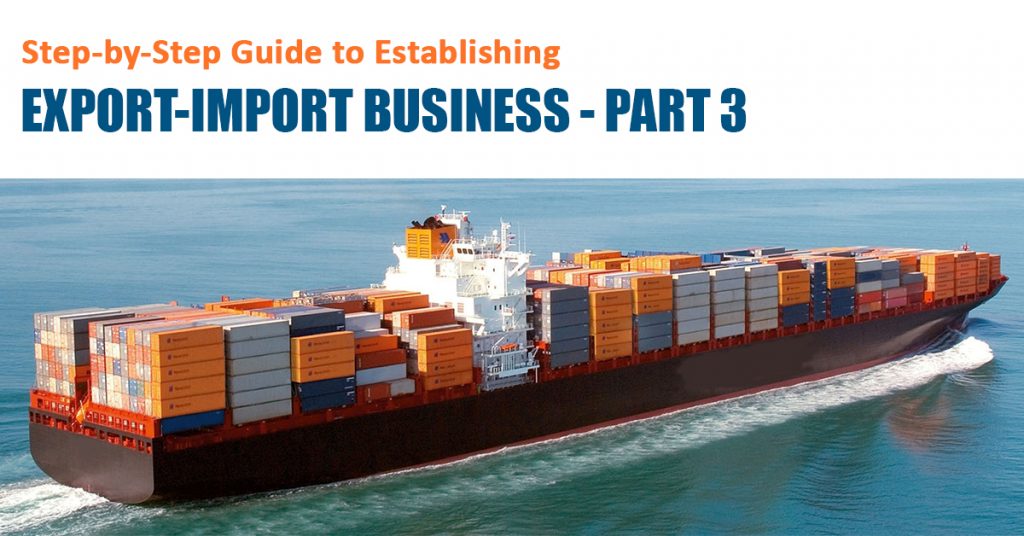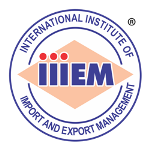
In continuation of PART 2, below are the last five formalities to meet to establish export import business.
Registration with ECGC
The exporter should also register with Export Credit and Guarantee Corporation of India (ECGC) to adjust some export payments against political and commercial chances. It also helps to get financial assistance from commercial banks and other financial organizations.
To read the part 2 visit here to know that what initially you need for export import business.
Registration under Central Excise Law
The Central Excise Tax is applicable if the following conditions are fulfilled:
(a) The duty is on the commodities
(b) The commodities must be excisable
(c) The commodities must be manufactured or produced and
(d) The commodities must be manufactured or produced in India.
When Registration is to be made: Every manufacturer or producer of commodities has to submit the prescribed application form to the jurisdictional Range Officer of the Central Excise for registration if the absolute value of the commodities cleared for home consumption, known as Domestic turnover, transcends the privilege limit. The privilege limit is INR 100 lakhs in case of SSI unit and INR 50 lakhs in case of non-SSI units. However, the unit is excluded from registration, if the products manufactured by it are not excisable. For e.g. manufacturing of salt does not attract excise duty. The incidence of duty is attracted when the goods are cleared from the factory/warehouse of the manufacturer.
Allotment of Registration Number: Once the unit is registered with Central Excise Authority, they grant Excise Control Code (ECC) Number. The ECC number is 15 digit code number with the first ten digits being the same as Permanent Account Number. Applicability of Excise Duty to Exporter: In respect of applicability of excise duty on exports involved, commodities enjoy exemption from duty on the final product, meant for export. Where the exemption is not availed, the return of excise duty paid is made, after the actual export. Secondly, refund of excise duty is made on the materials used in the manufacturing of commodities, meant for export. The exporter has to present the prescribed form ARE-1, in sextuplicate, to the accountable central excise authority for the central excise refund of the commodities.
Registration with other Authorities
It is advisable for the exporters to become members of local Chamber of Commerce, Productivity Council or any other trade development organization recognized by the Ministry of Commerce or Industry. Local membership benefits the exporters in different ways, including in obtaining Certificate of Origin, which is vital for exports to certain countries.
Registration for Business Identification Number
The exporters have to get PAN based Business Identification Number (BIN) from the Directorate General of Foreign Trade before filing for customs clearance of export commodities. The goal of BIN is to bring a standard identification number to all persons administering with various regulatory agencies, such as the Income Tax Department, Central Excise and Customs Department, Offices of Director General of Foreign Trade, etc. All assesses would considerably be benefited if they have to obtain just one identification number for use by the various Government agencies.
Export Licensing
Many items of commodities are free for exports without securing any license, if they do not come under the Negative List. The Negative list contains those goods whose import or export is banned, restricted through licensing or otherwise canalized.
Part–I: Prohibited Items: These items cannot be exported or imported. These items include wildlife, exotic birds, wood and wood products in the form of logs, timber, pulp, and charcoal.
Part–II: Restricted Items: These are the items whose export or import regulated through license. They can be exported or imported only in accordance with the regulations governing on this behalf.
Part–III: Canalized Items: Goods, which are canalized, can be exported or imported through the canalizing agency, named in the Negative List. The Director General of Foreign Trade may grant a license to any other person to export or import those items, which are included in the Negative List.
It is evident from the above; all commodities may be exported barring items in the Negative List. Items in the Negative list can be banned items, exported or imported by license or through the designated canalizing agency or others under exceptional conditions. So, it is important for the exporter to check the type of the item before he enters into the contract or even makes attempts to secure the export order. Needless to add, the item of export agreed upon should not fall on the banned list.
For more information or for any assistance, please email at info.iiiem@gmail.com
